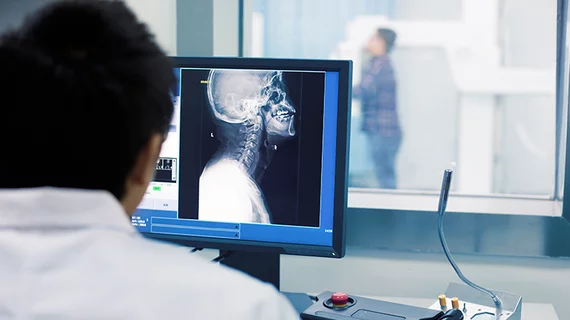Delaying rule to fast-track breakthrough devices only ‘kicks the can down the road,' imaging advocate says
A top medical imaging advocate on Thursday expressed its displeasure with the federal government’s recent decision to delay implementation of a rule that would expedite patient access to “breakthrough” devices in imaging and other specialties.
The Medical Imaging and Technology Alliance said it’s concerned with the Centers for Medicare & Medicaid Services’ move to postpone the final rule until Dec. 15. On Friday, May 14, Health and Human Services said it agreed with stakeholders’ apprehensions received during a since-closed public comment period.
Finalized in January, the Medicare Coverage Innovative Technology rule would eliminate lag time between FDA approval of innovative technologies and Medicare coverage. At that point in time, MITA celebrated its finalization as a “major regulatory win.”
“We are greatly disappointed by the CMS decision to postpone implementation of MCIT,” Executive Director Patrick Hope said Thursday. “Further delaying this coverage pathway effectively denies patient access to breakthrough technologies and ‘kicks the can down the road,’ leaving patients, healthcare providers, and medical device innovators in limbo.”
HHS officials said the extra time will go toward addressing commenter's anxieties, including protecting Medicare patients and solidifying coordination between coverage, coding and payment.
Earlier this year the Biden administration punted the rule’s start date to May 15, making this the second such delay.
The American College of Radiology had previously expressed its own worries about the rule while manufacturing groups, such as the Advanced Medical Technology Association or AdvaMed, have urged policymakers to implement MCIT as soon as possible.
“Despite our concerns, we will continue our engagement with the agency to support the implementation of MCIT before the end of 2021,” Hope said in a May 20 update.

